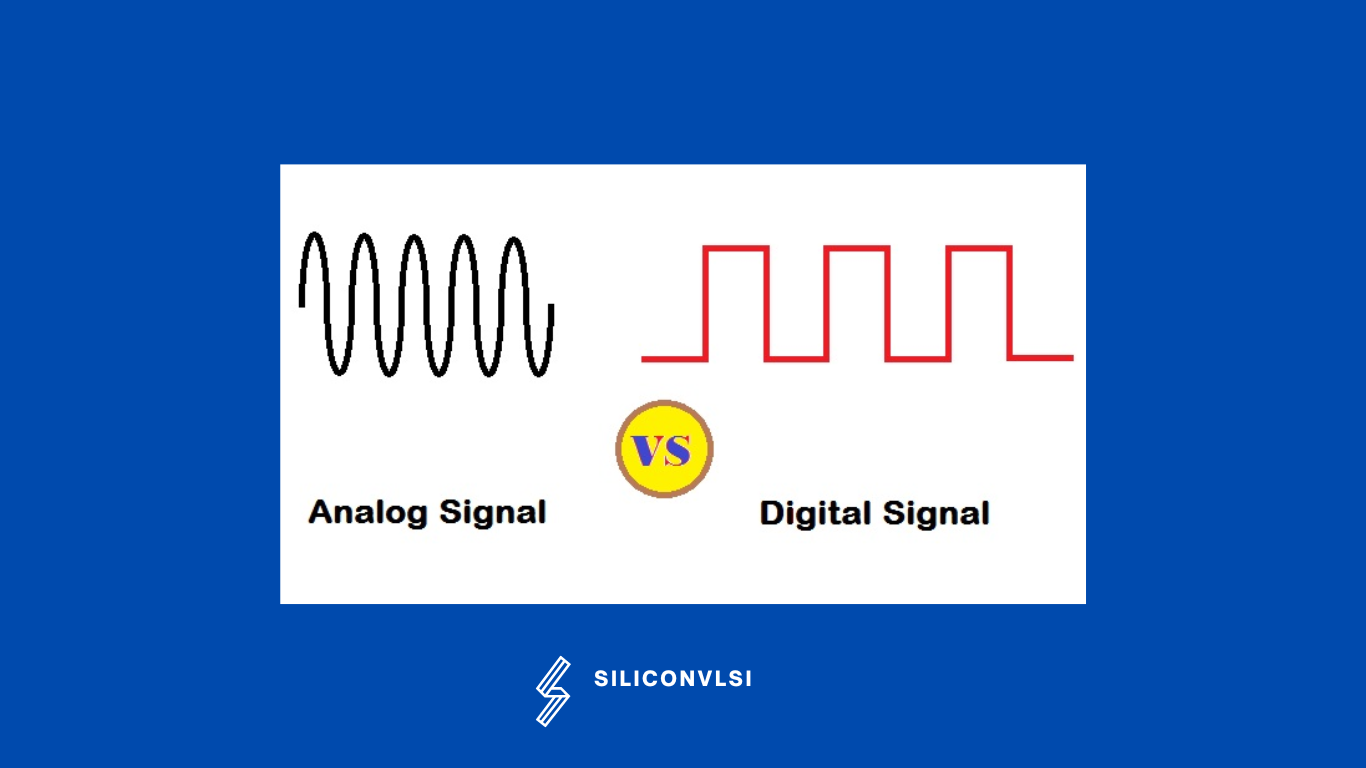What are Analog and Digital Signals?
The main difference between the two signals is that analog signals are continuous signals and whereas digital signals are discrete signals.

| No. | Analog Signal | Digital Signal |
|---|---|---|
| 1 | Analog signals are continuous | Digital signals are discrete signals |
| 2 | Analog signals can be affected by the noise during the transmission. | Digital signals can not be affected by the noise during the transmission. |
| 3 | The accuracy of the signal can be affected by noise | The accuracy of the signal can not be affected by noise |
| 4 | A device using analog signals is less flexible | A device using analog signals is more flexible |
| 5 | Analog Signal consumes less bandwidth. | Digital Signal consumes more bandwidth. |
| 6 | It’s stored as a continuous waveform. | It’s stored in binary form like 0 or 1. |
| 7 | Analog signals have a low cost. | Digital signals have a high cost. |
| 8 | Analog signals are postable. | Digital signals are non-portable. |
| 9 | Analog signal gives observation error | The digital signal will not give any observation error. |
What is the difference between analog and digital cable signals?
The primary benefit of a digital TV connection compared to a cable TV connection is the transmission of binary bits instead of analog signals. This digital transmission accurately reproduces the original material, resulting in superior picture and sound quality consistently.